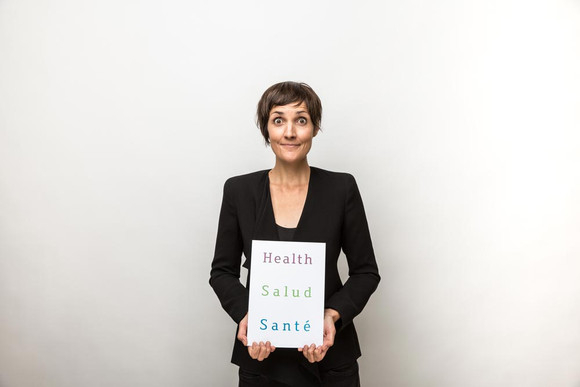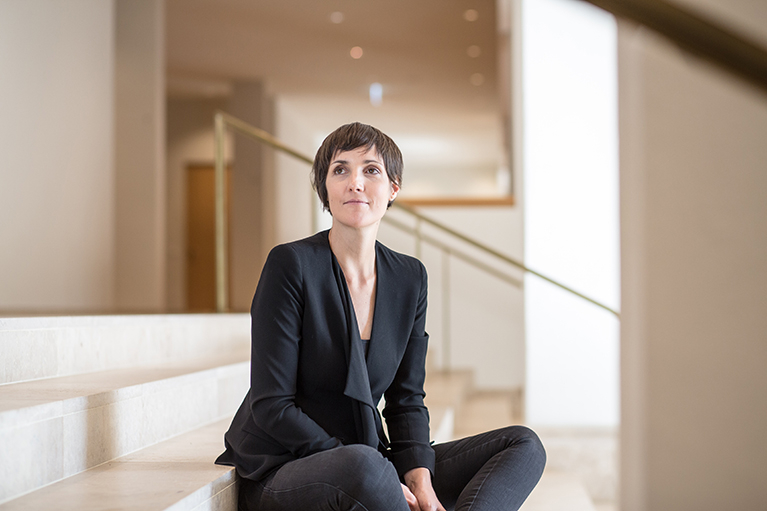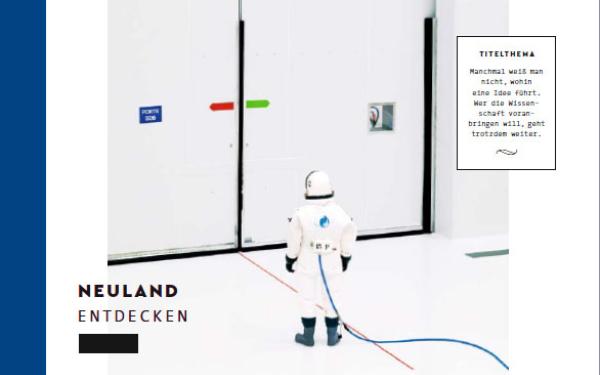
Martin Bühler für VolkswagenStiftung
And the other way around? Global health upside down!
Tine Hanrieder already demonstrated a mind of her own while she was a student of political science. When she presented her professor with an unusual idea for her master's thesis, he rebuffed her harshly: "Your thesis addresses a totally irrelevant debate. It’s no more relevant than a campaign for bat protection in public politics." But Tine Hanrieder was not to be deterred so easily. She found herself a new mentor and wrote her master's thesis. With great success: Invitations to conferences followed, and respected journals published the articles she authored on the subject.
Questioning Established Opinions
"I've always been interested in questioning conventional opinion and exploring new ground," says Tine Hanrieder. It therefore comes as no surprise that she was offered a 'Freigeist' Fellowship (Project: "Medical internationalisms and the making of global public health (Dr. Global)") to set up a junior research group for "Global Humanitarian Medicine" at the Berlin Social Science Center. Here, too, a change of perspective is important to her. She is working on a classic topic from a completely new angle.

Freigeist-Fellow Dr. Tine Hanrieder.
Our understanding of "Global humanitarian medicine" or "global health" is generally shaped by the media: If a catastrophe, a severe earthquake, an epidemic or a flood catastrophe occurs somewhere in a developing country, then helpers from the industrialized countries arrive as quickly as possible to care for the sick and injured and help out with emergency equipment at short notice.
How do the lessons learned in the South affect what we do at home?
But this reveals a one-sided stereotypical view of the world: The "rich" are always standing by to help the "poor". Tine Hanrieder is going her own way once again: "We want to find out to what extent the experiences made in the so-called developing countries are subsequently brought back to the industrial nations. In other words, how do the lessons learned in the South affect what we do at home?"
Videointerview (in German): Tine Hanrieder on her project "Dr. Global"

In her research project "Doctor Global", Tine Hanrieder looks above all at the work of US, Cuban and French aid organizations; for example Médecins sans Frontières or Médecins du Monde. With their experience from developing countries, Médecins du Monde began in the 1980s to set up medical stations, so-called cliniques, in France for the poor and homeless – especially to help the "under-served" in urban flashpoints. Such clinics, which are mainly financed by donations, still exist today. "We also want to investigate the extent to which the experiences made abroad are systematically integrated into medical career paths and become part of professional ethics," says the researcher. For example, there are indications that people who have helped in developing countries think more in terms of solidarity than in terms of their own advantage or personal gain.
A cross-disciplinary field of research
In the spirit of the Freigeist aspiration of being innovative and crossing borders, Tine Hanrieder cooperates with researchers from very different disciplines – anthropologists, historians and sociologists. "This is necessary because our field of research is cross-disciplinary: My historical-sociological view of the internationalization of medicine makes me look like a sociologist to many, even though I am actually a political scientist".
In the coming years, Tine Hanrieder and her team will be on the road a lot in France, Cuba and the USA, conducting interviews and establishing further contacts with aid organizations. A large part of the work consists of collecting and evaluating informative files and documents. "For example, Médecins sans Frontières have provided us with many internal minutes of meetings that help us enormously. They provide a deep insight into the organization, their way of thinking, the change of mind, the physicians view on France and other industrial nations where the organization has offices – including Germany".

Dr. Tine Hanrieder forscht am Wissenschaftszentrum Berlin für Sozialforschung.
Healthcare model from Cuba in demand in the USA
For Tine Hanrieder, Cuba is particularly interesting because it turns the classic picture of development aid upside down. Today, the Caribbean island exports its very own system of good medical care – even to the USA. Cuba has an open health system that is close to the people. You can find a neighborhood practice in every district, a consultorio, where treatment is free of charge. The doctors there are also responsible for preventive health care in their neighborhood, giving people tips on proper nutrition, for example. Tine Hanrieder says that the idea of consultorios along the lines of the Cuban model of primary care is partly highly regarded in the USA. Among the Navajo people, for example, there are efforts to take this as an example. She does not yet know whether and how the Cubans' experiences in the USA will in turn have an effect on their homeland too. "We are currently in contact with Cuban experts and hope to gain access to official sources," she says. Whether she will get it, and whether she can incorporate the information into her work, is still open – but flexibility and coping with uncertainties are all part of a Freigeist Fellowship.
An article from the new Volkswagen Foundation Impulse-Magazin 2019.


